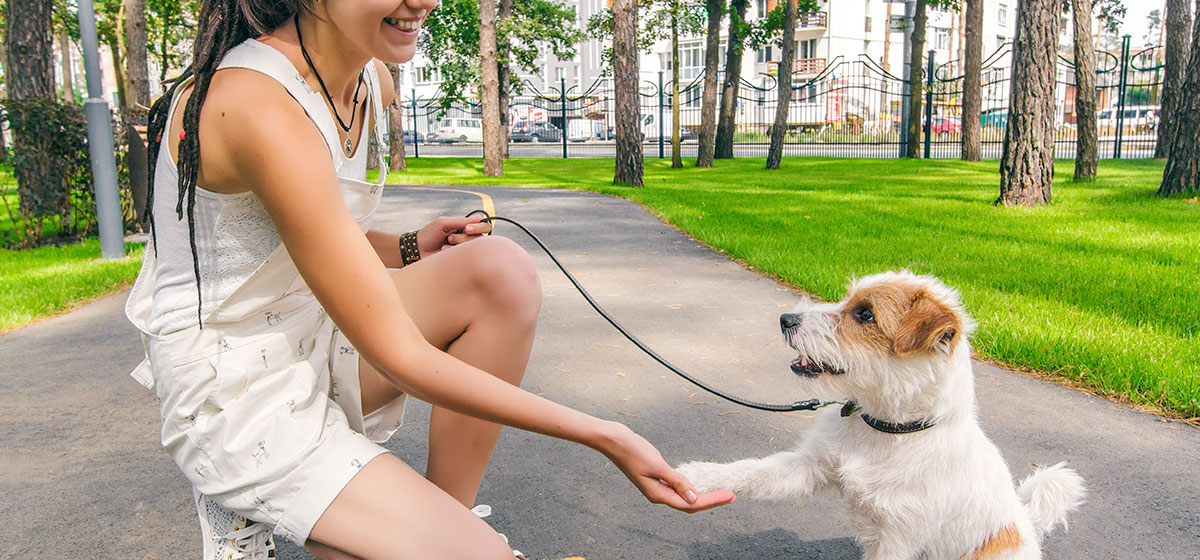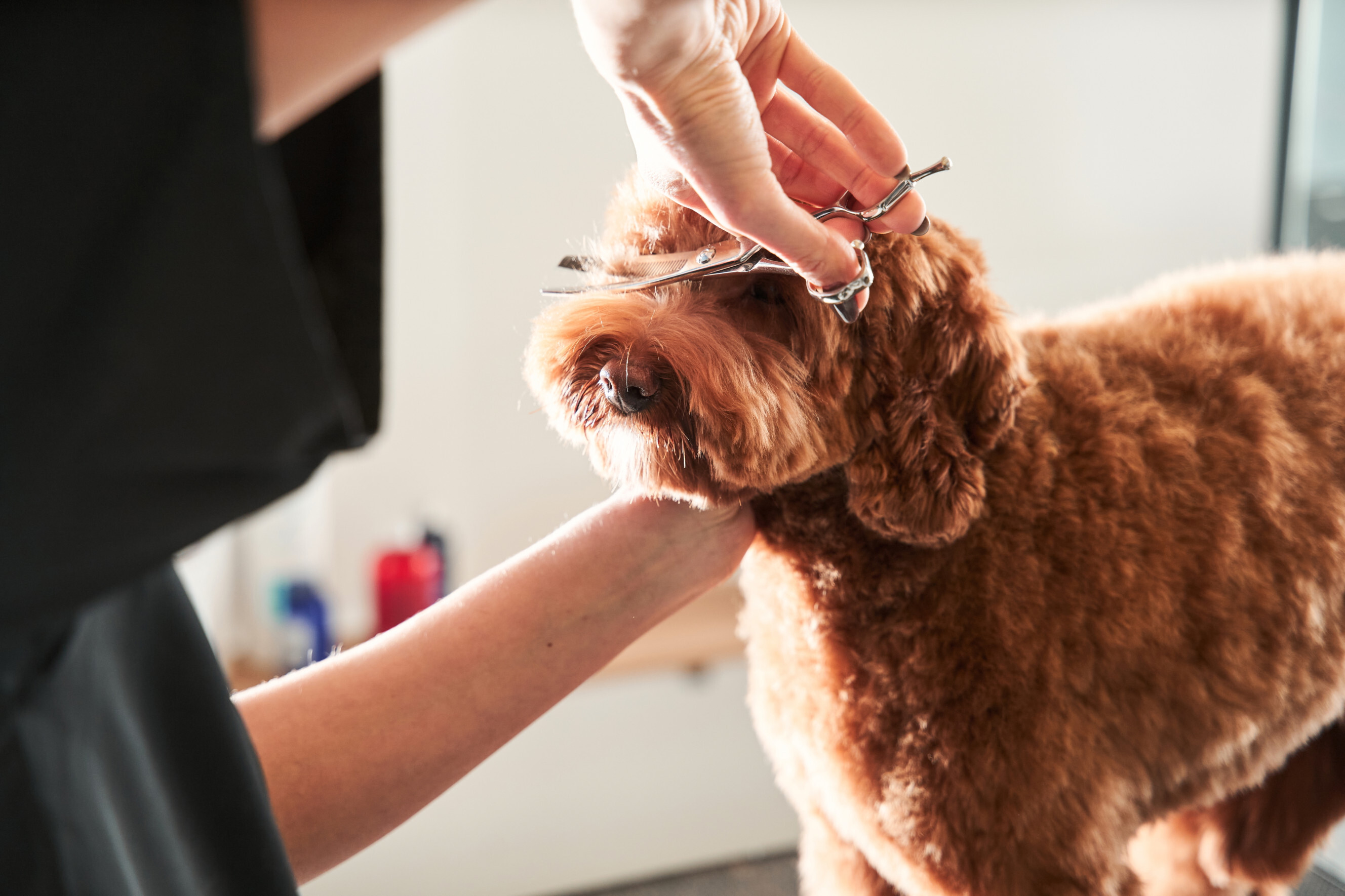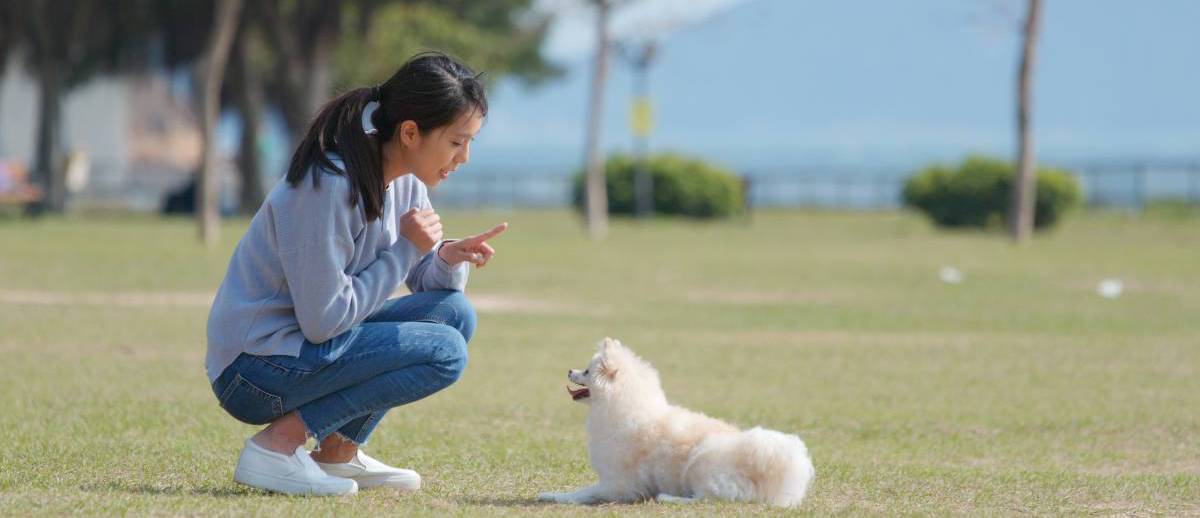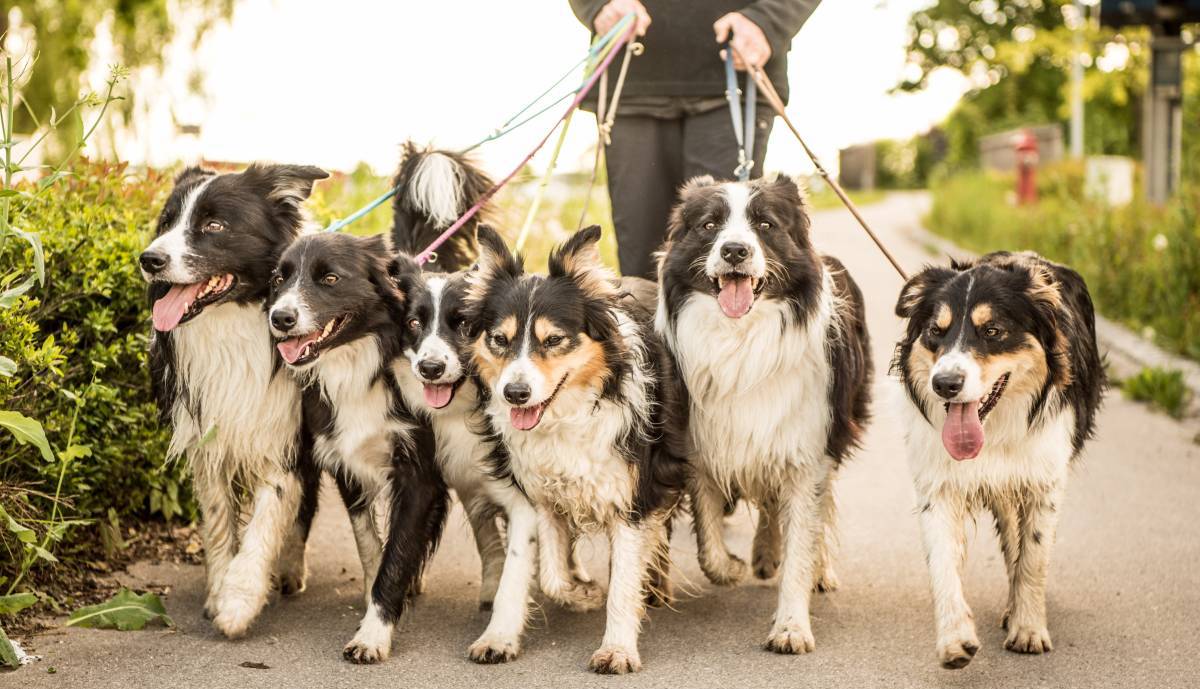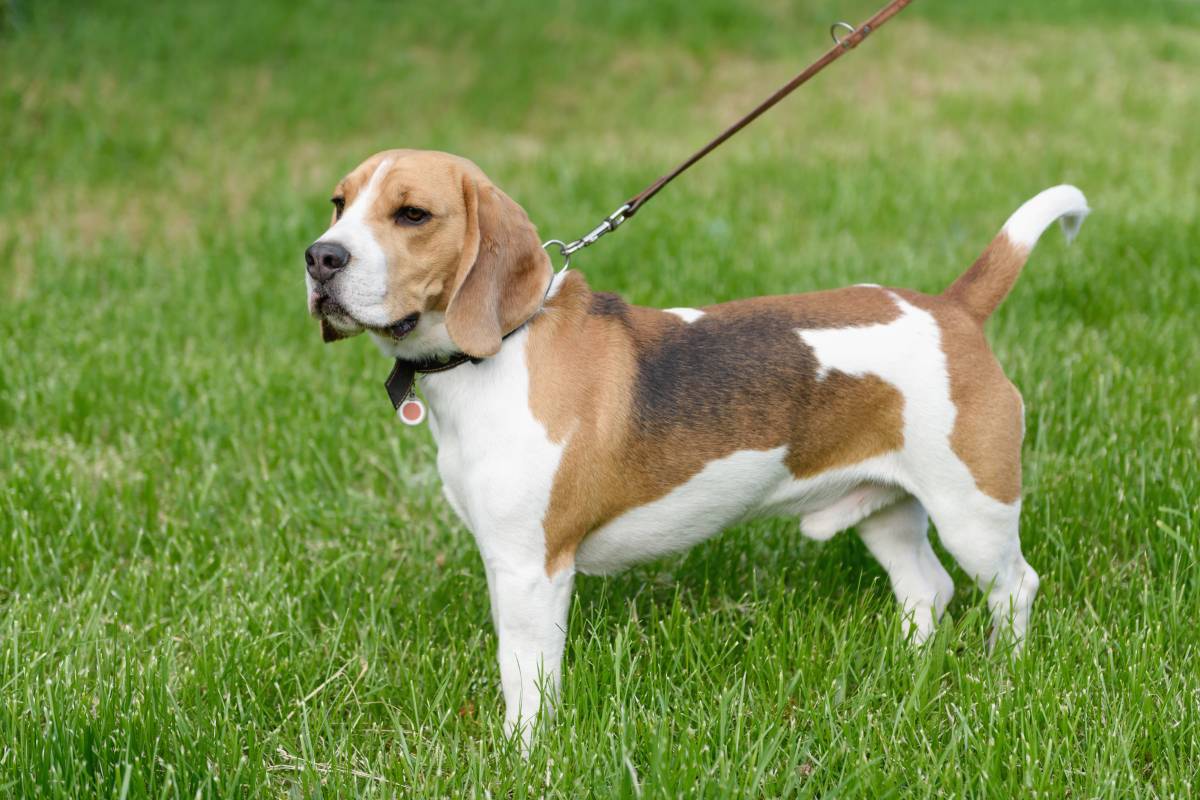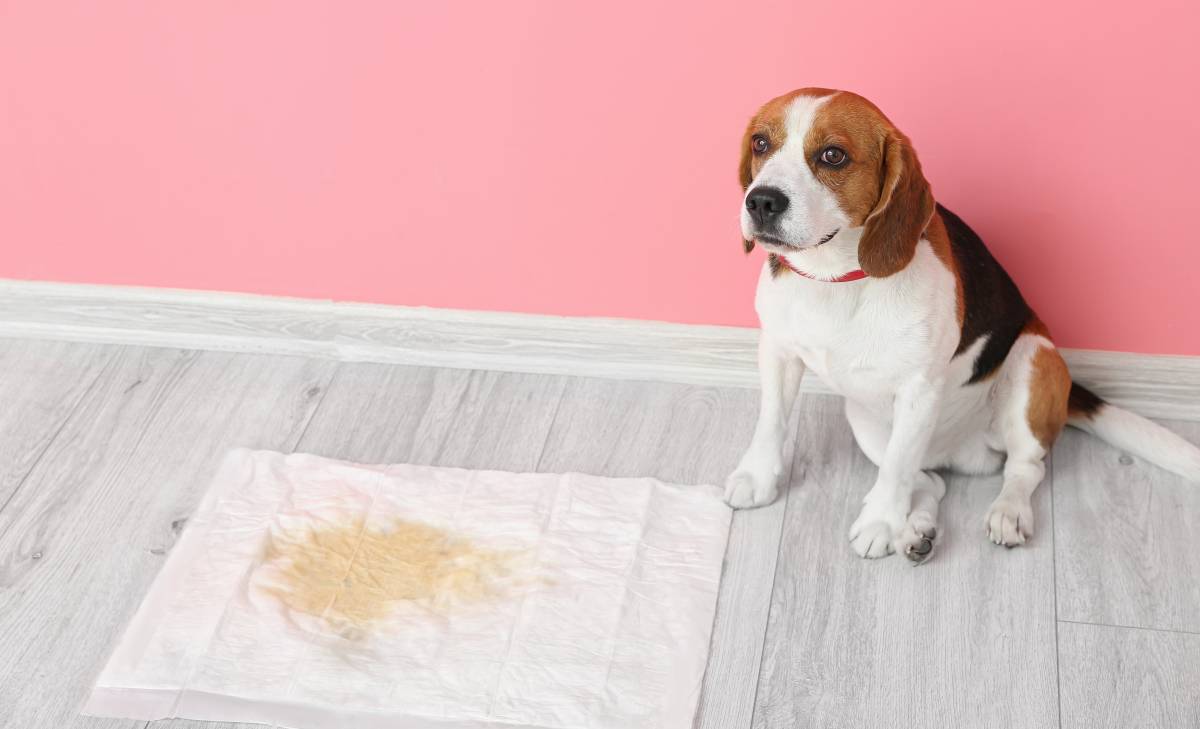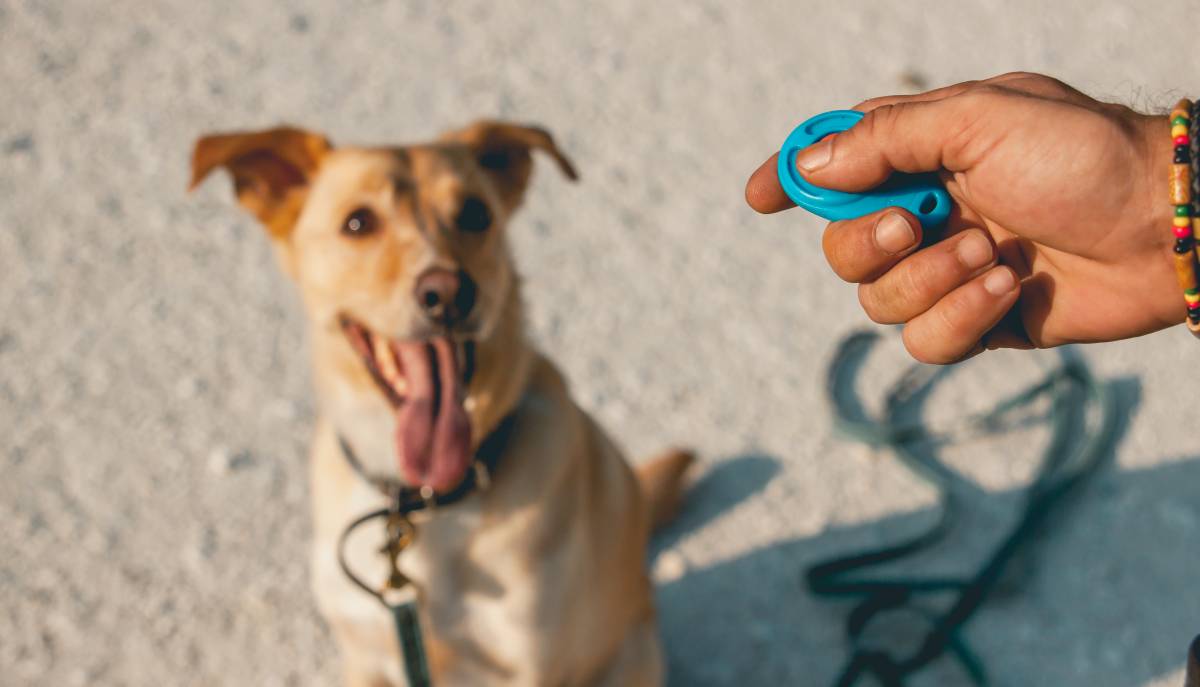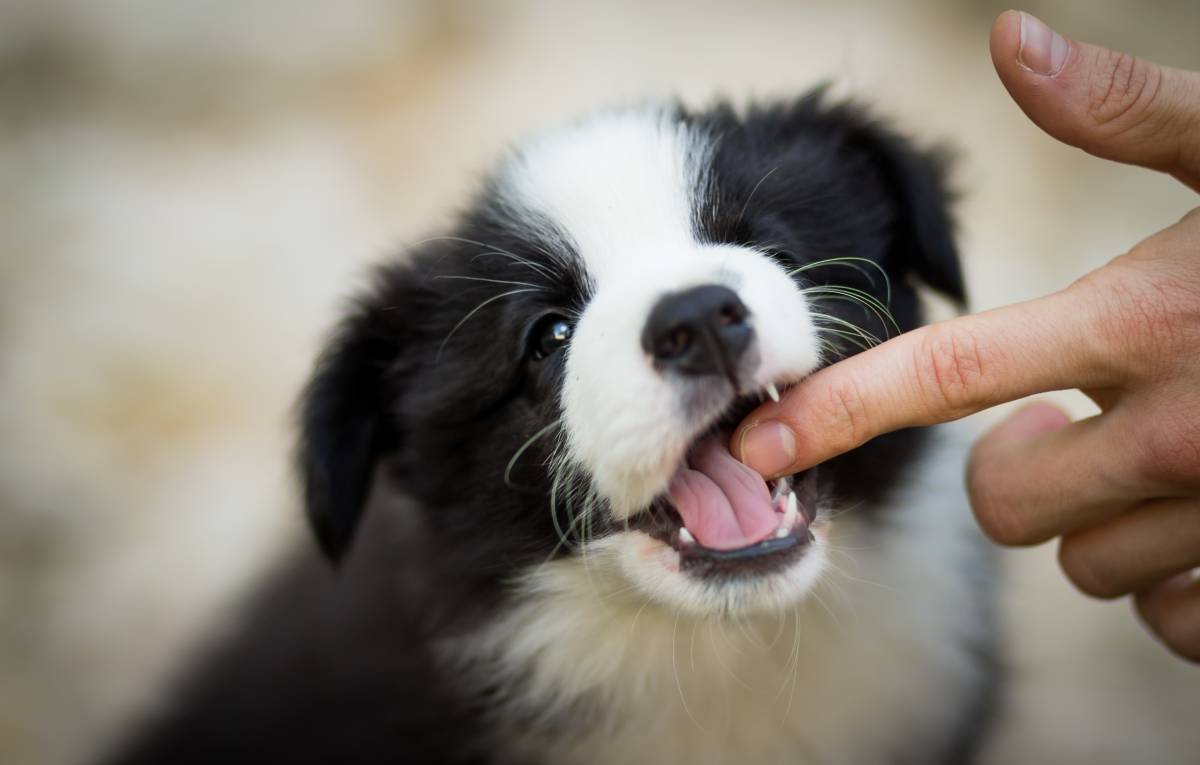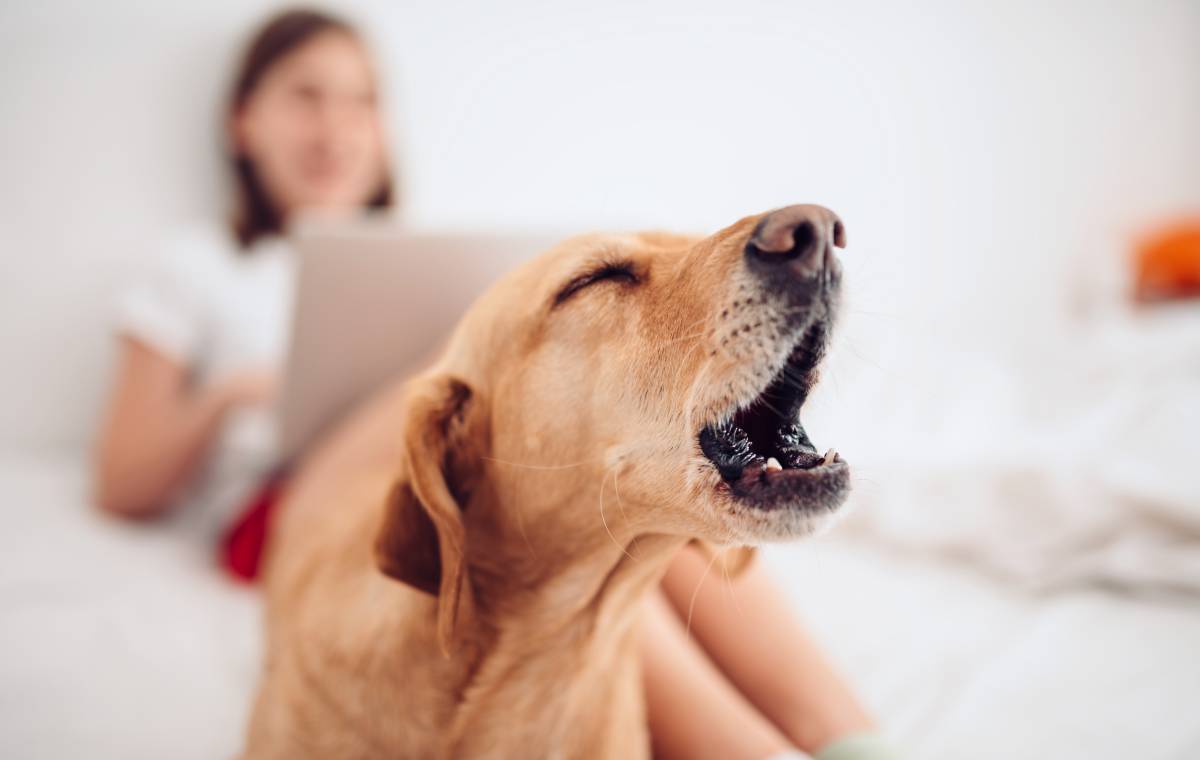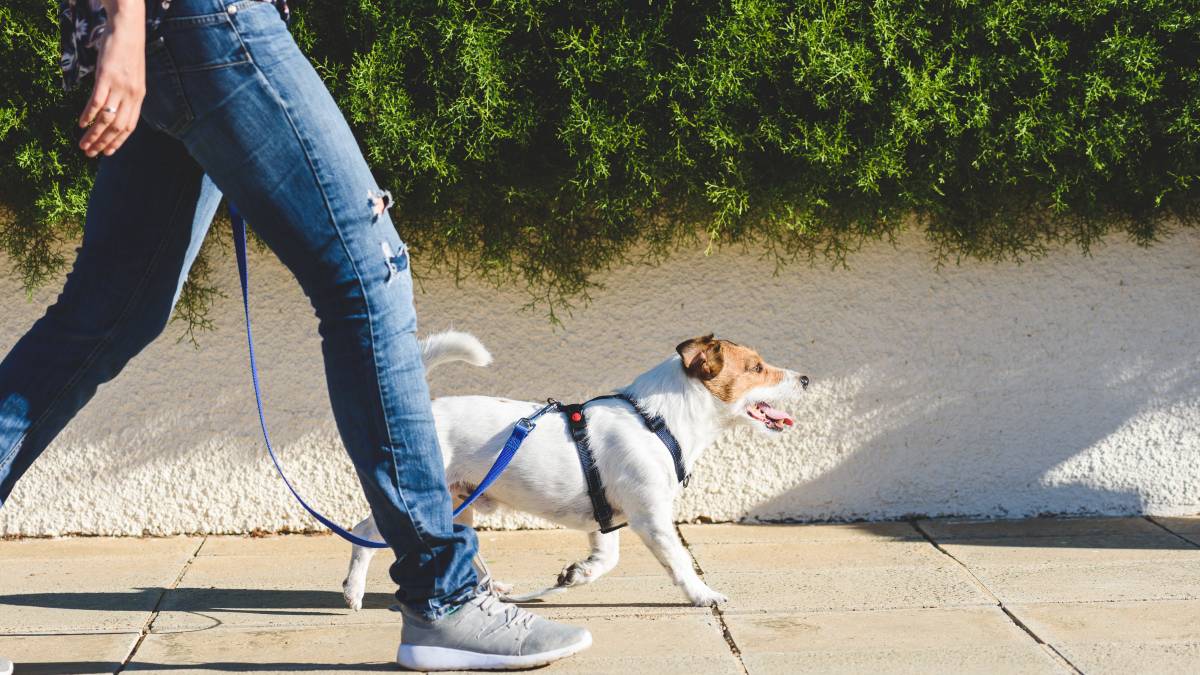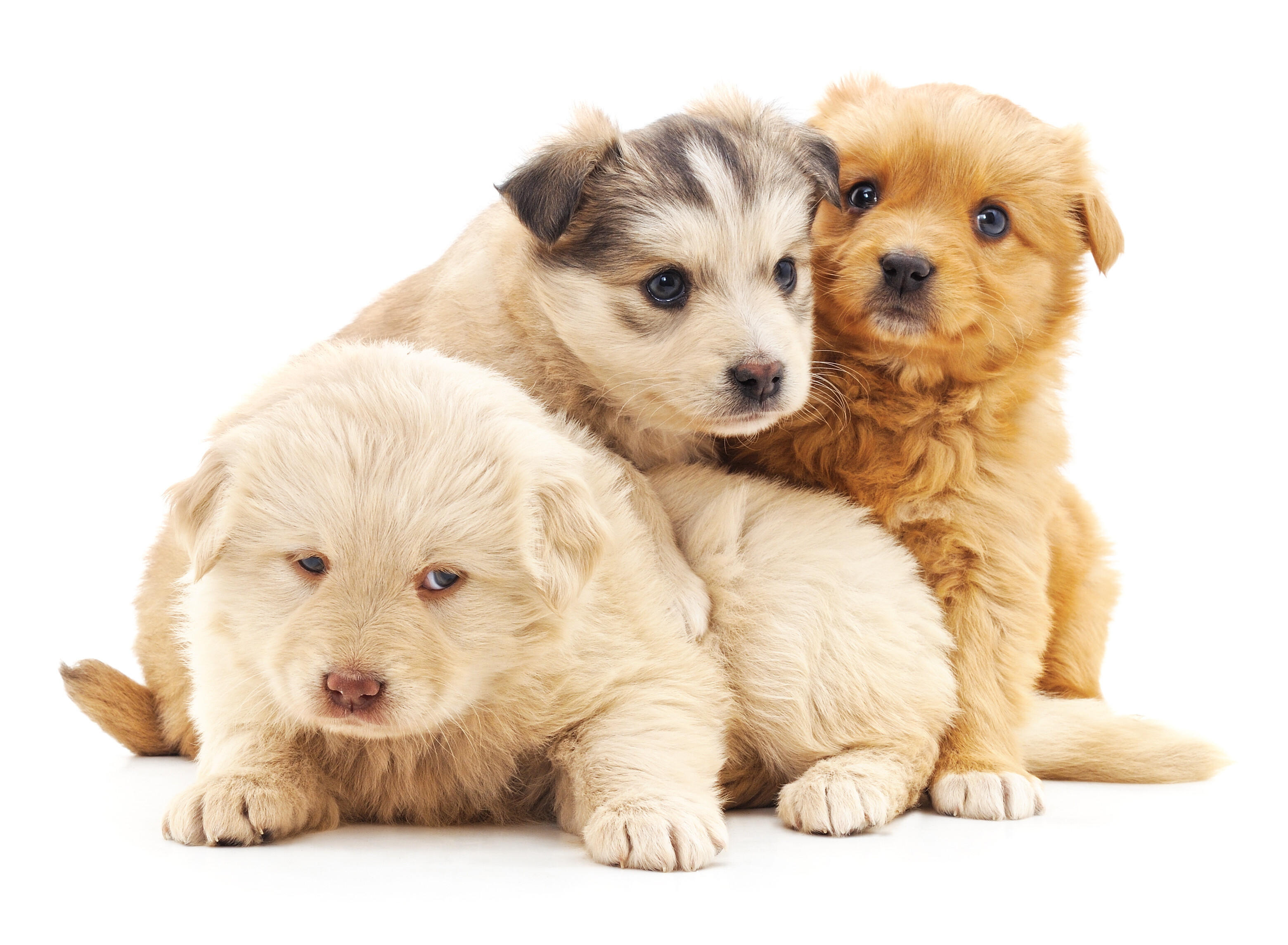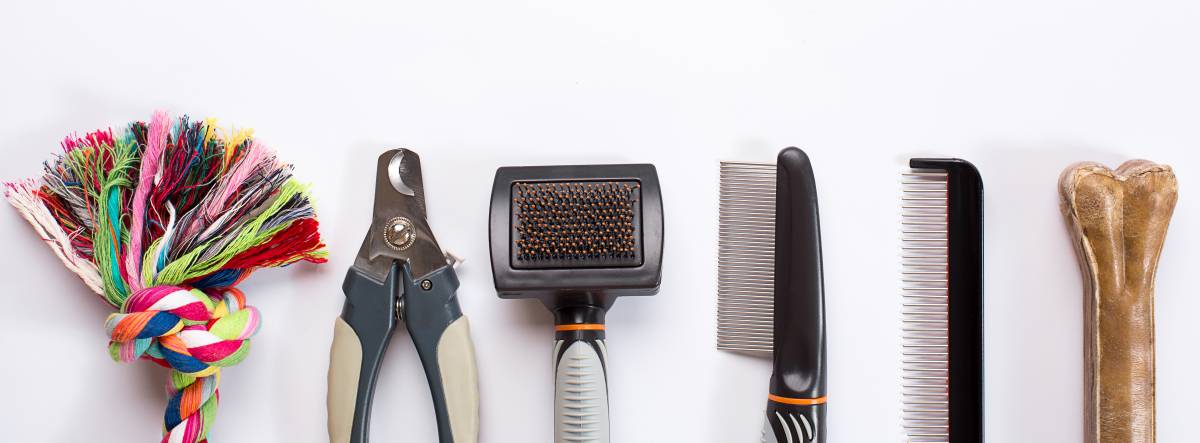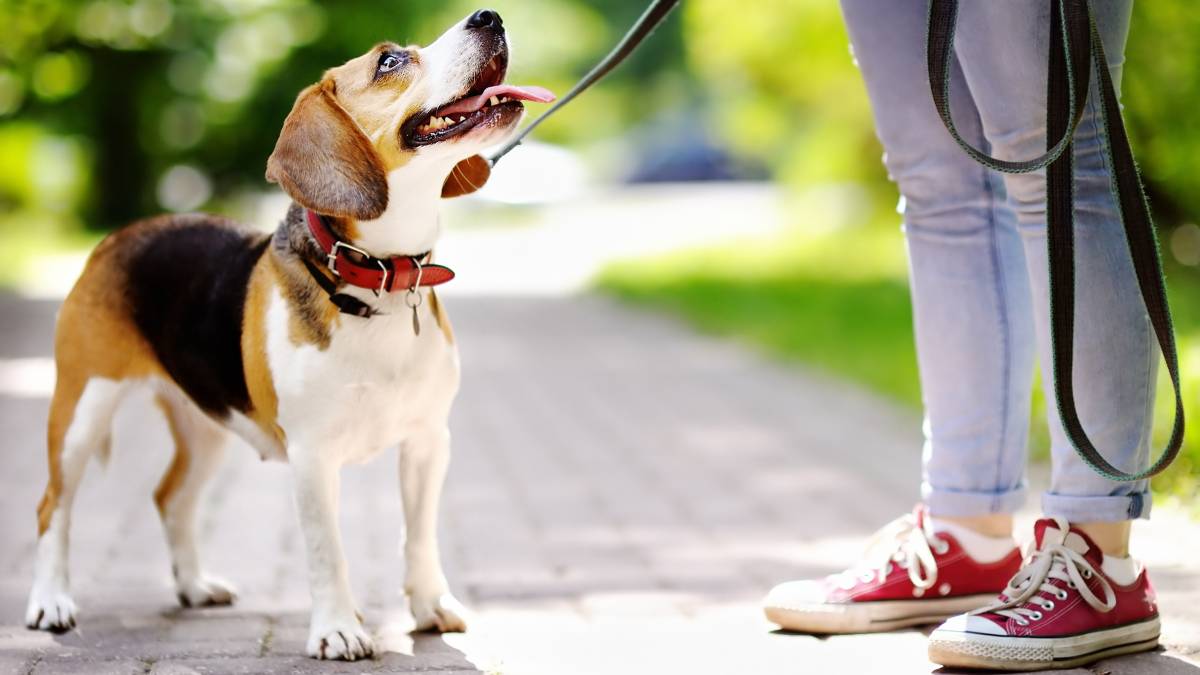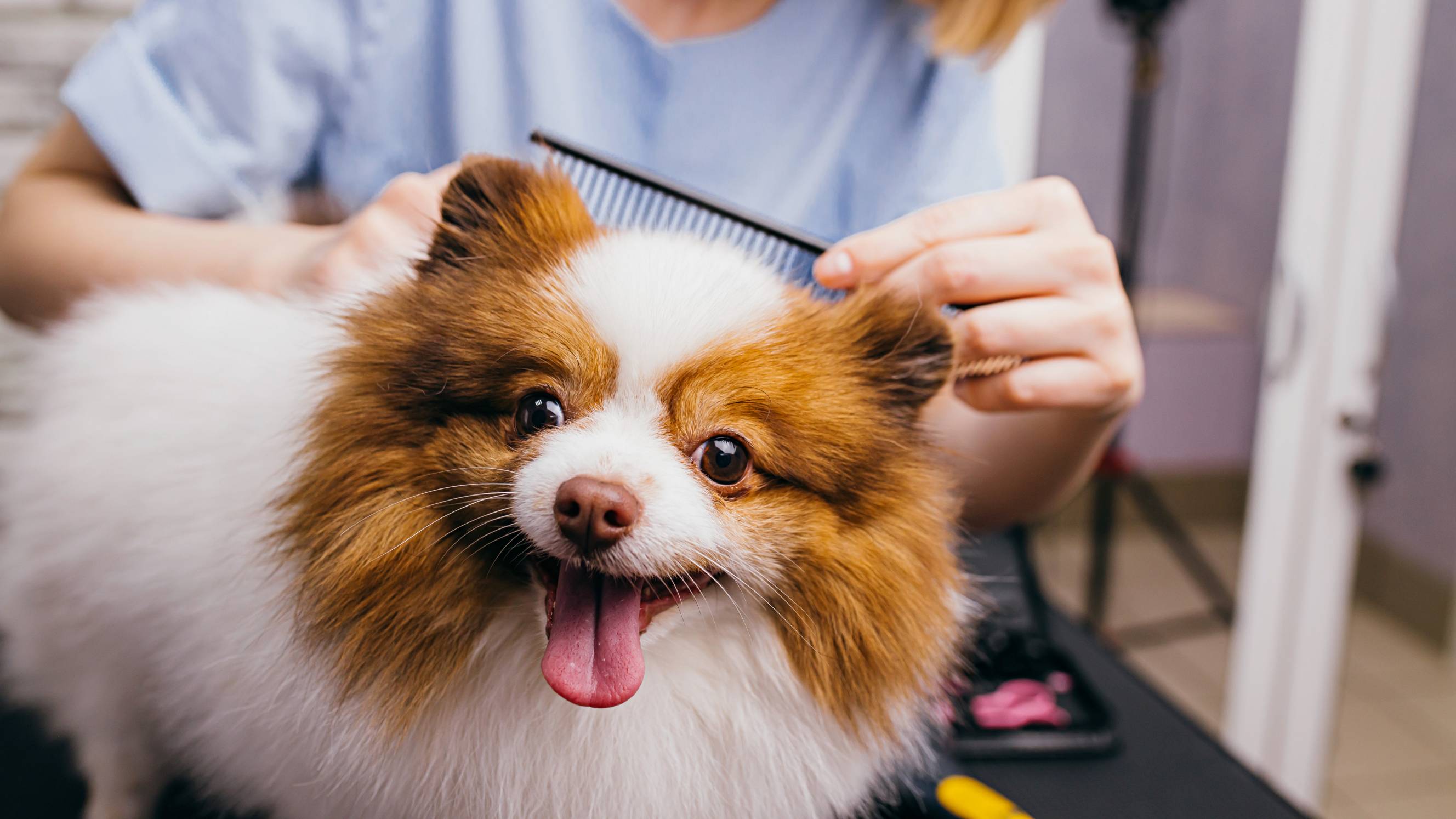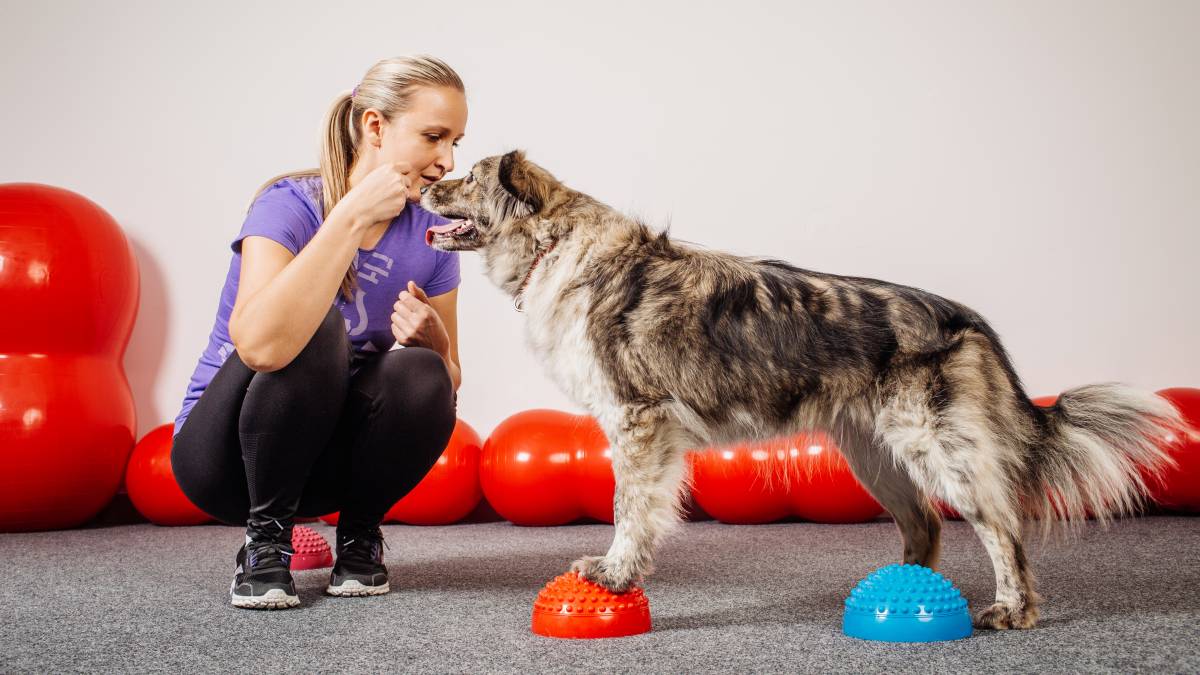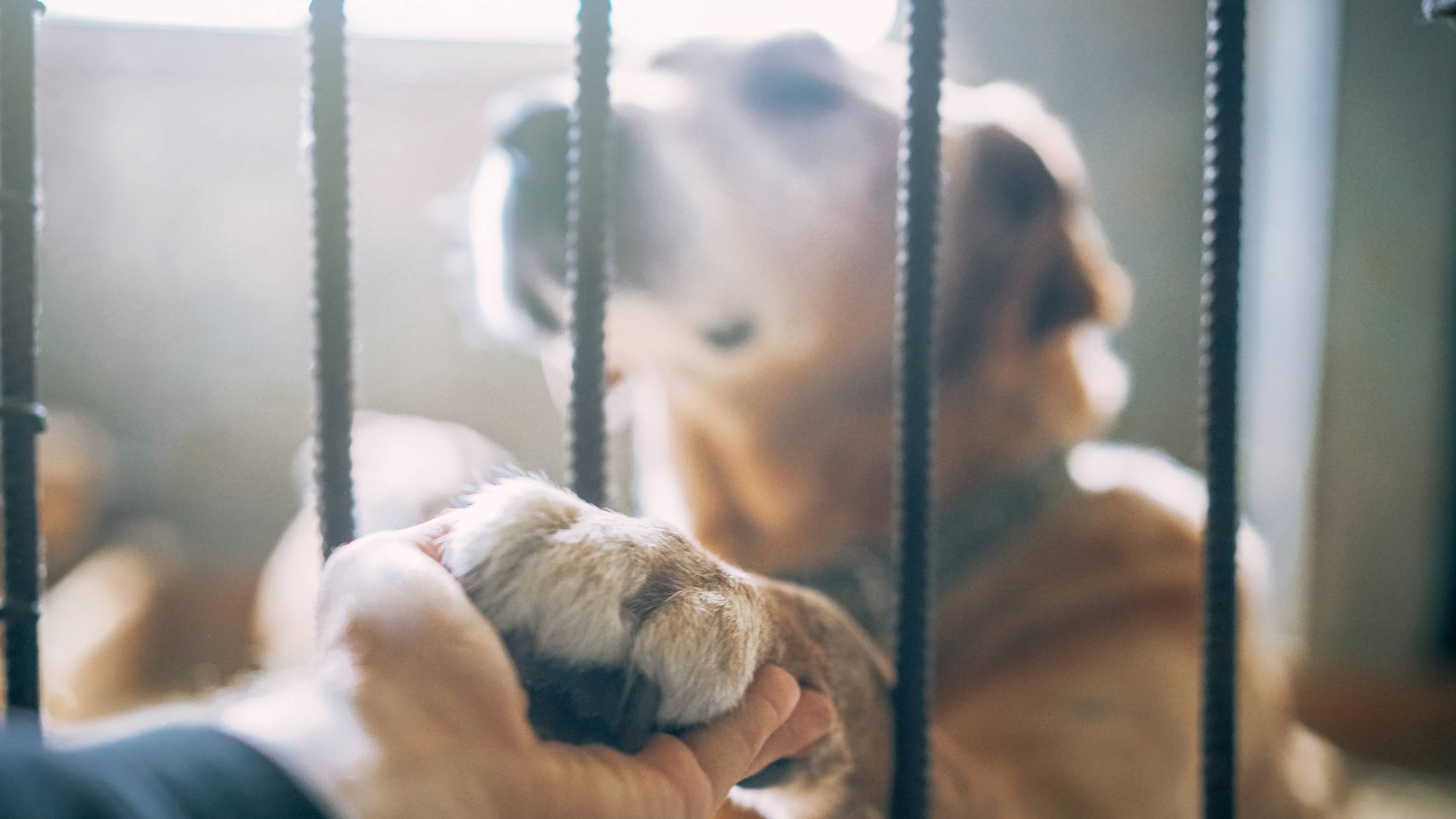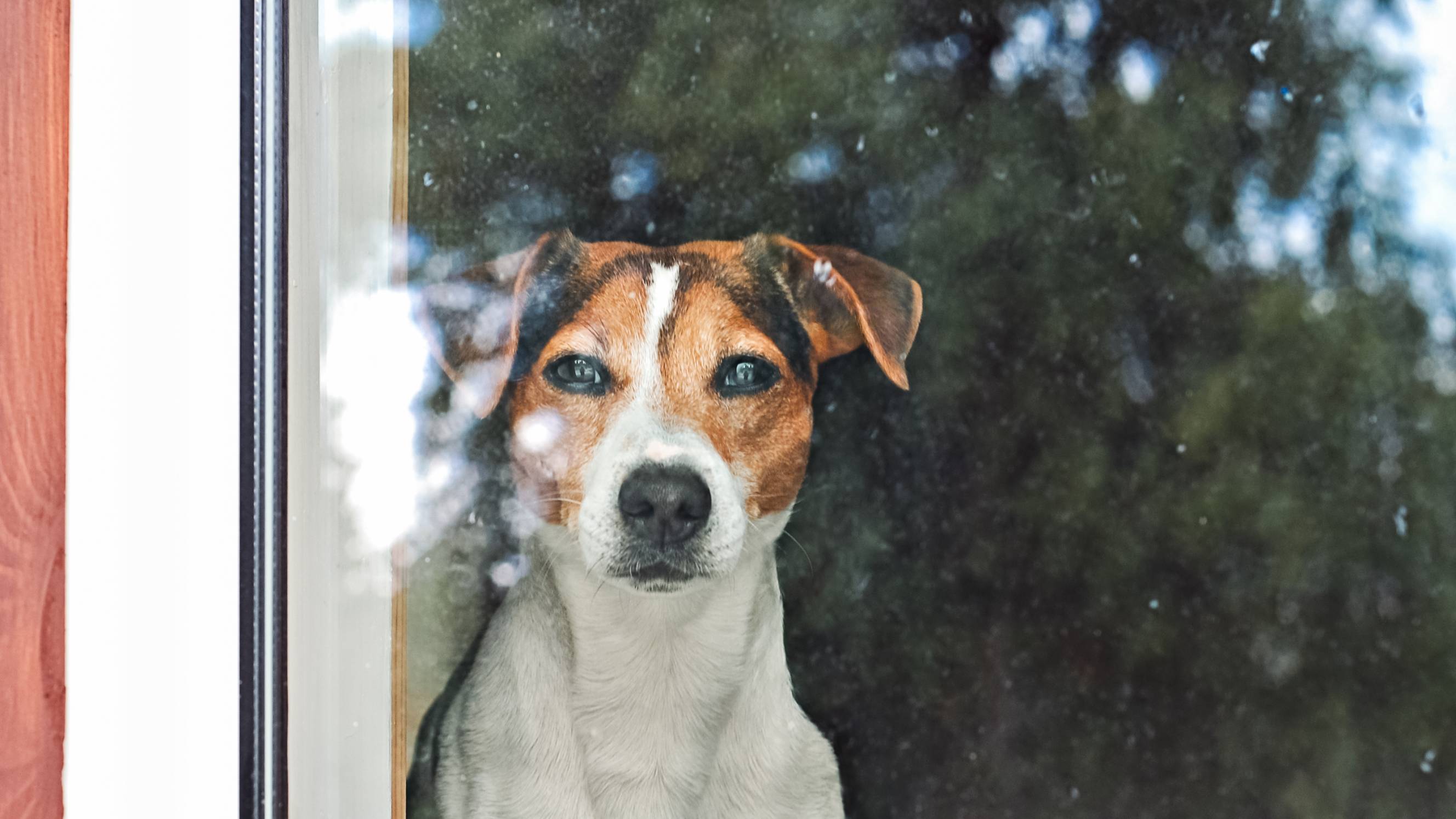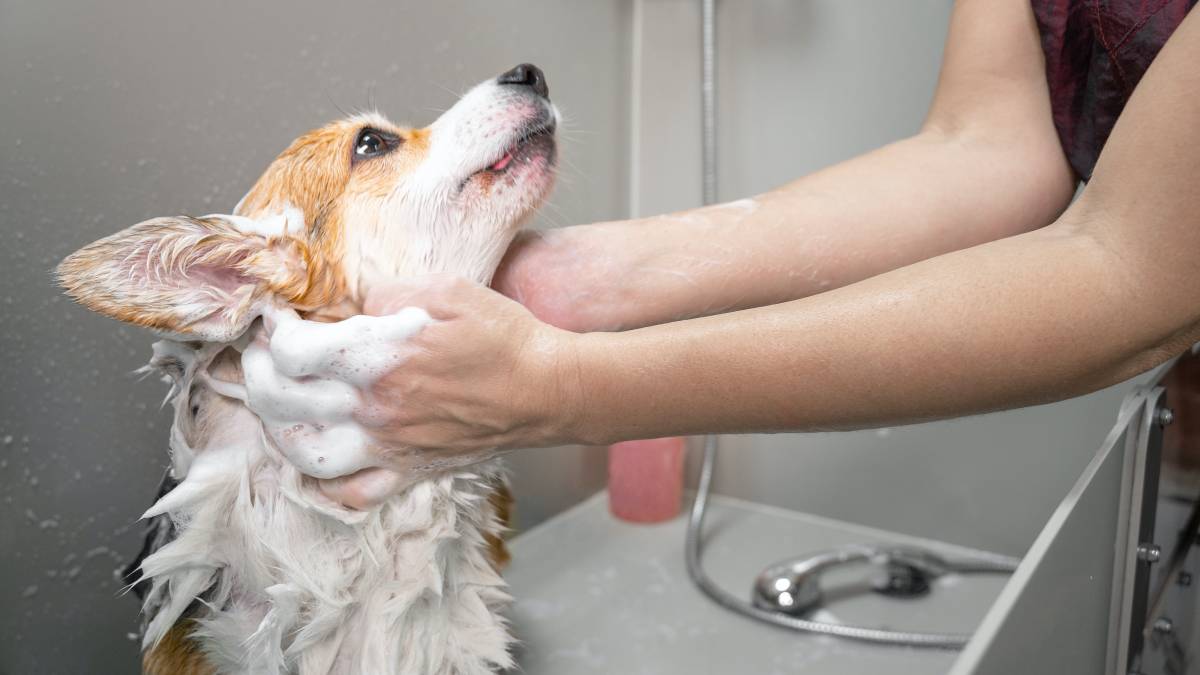- Home/
- Guides/
- Dog Grooming/
- How to Groom a Dog
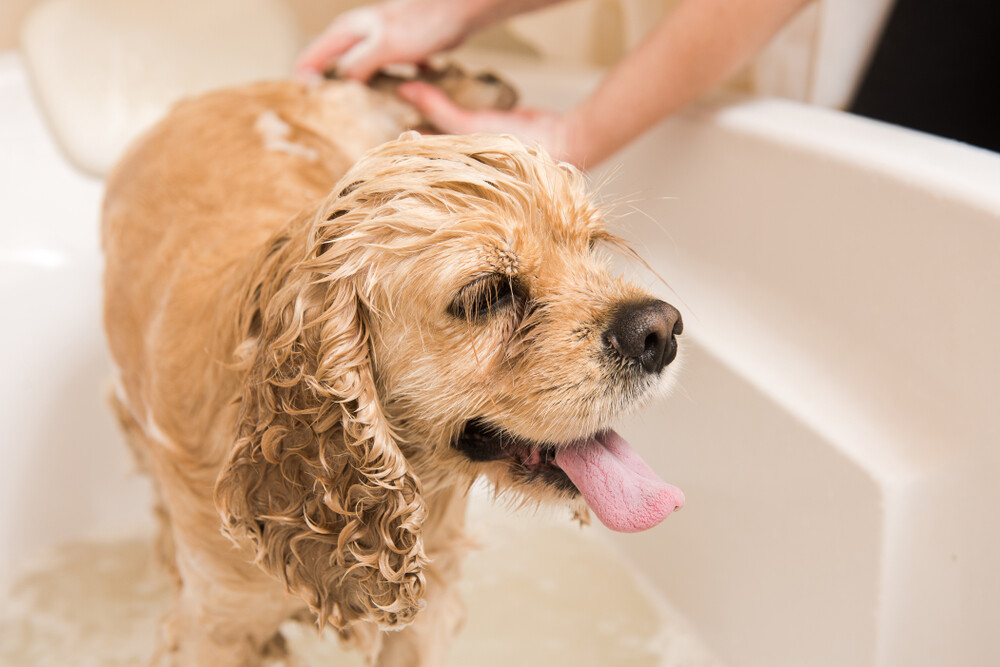
How to groom a dog step by step
Know all the basic tools and safety tips to groom your dog.
Consult a professional groomerLast Updated on
Every dog owner wants their furry pal to always look and feel their best, and good grooming is the key! By learning how to groom a dog and keeping up with routine grooming, it also becomes easier to examine your dog’s coat, teeth, eyes, ears, and nails to avoid any major problems. And if you properly groom your dog at home in between major visits to the groomer, your fluff ball will always look its best.
Let’s dive into some DIY dog grooming tips and the equipment needed to do a good job.
At-home grooming tools
Regardless of your dog’s breed, both small and large dog grooming requires some basic supplies.
- Dog toenail clippers: It can be a good idea to have some styptic powder on-hand if you make a mistake and need to stop some bleeding. Many owners prefer to leave this job to professional dog groomers to avoid harming their pets.
- A medium-toothed comb: As an all-around comb, the medium-toothed comb should suit any kind of fur. You’ll want a fine-toothed comb for thin-haired dogs or a wide-toothed comb for dogs with thicker fur. A flea comb is a good two-in-one as it will target both fleas and tangles.
- A brush: Along with a comb, a slicker or curry brush is best for short hair, and a pin brush will suit long coats.
- pH-balanced dog shampoo and conditioner: Avoid using human shampoo as this can irritate your dog’s skin. You’ll also want plenty of old towels post-bath for the inevitable water shake!
- Dog ear cleaning solution, forceps, and gauze: These tools will help you clean your dog’s ears.
- A dog toothbrush and toothpaste: The most challenging part of cleaning, but also the most important as dog breath is, well, truly intense!
- An electric clipper: A No. 10 Oster blade is best for dogs with coats that require a bit of a trim.
A step-by-step guide to dog grooming
Step 1: Trimming your dog’s nails
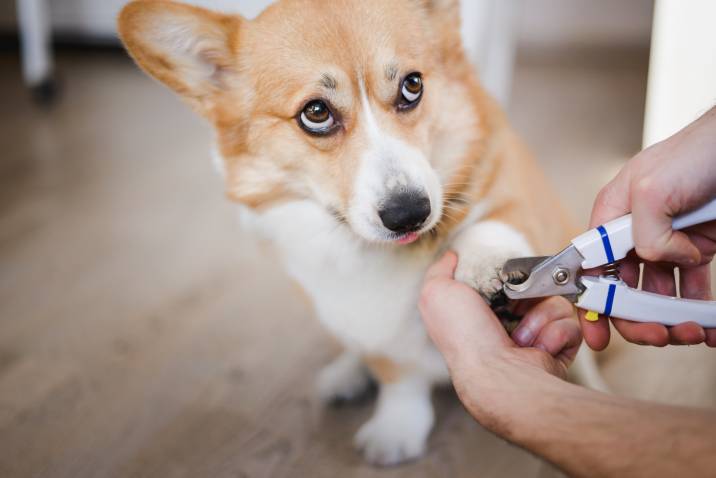
With daily exercise, your dog’s nails should remain at a good length, thanks to natural wear. However, not all nails touch the ground (i.e., the ‘thumb’ nails higher on the feet).
These tips will help you keep your dog’s nails in good condition:
- Trim only a small amount off the tip.
- Talk to your vet first and have them show you how to trim your dog’s nails safely and avoid bleeding and pain. Your vet will let you know a suitable length and the best clipper to use.
- If your dog has transparent nails, trim before the pinkish area, which is the blood vessel. For dogs with opaque dark nails, you will absolutely require guidance from your vet.
- Use a nail file to smooth rough edges.
Step 2: Brushing your dog’s fur
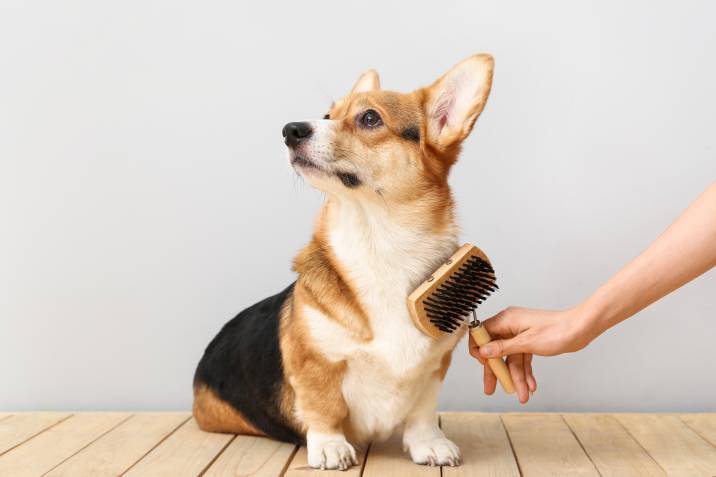
Different types of dogs require different brushes. The goal should be a comfortable brush suitable for your dog’s specific type of fur. Brushing will become an enjoyable pamper session as you learn how to get your dog used to grooming!
- Ensure the brush does not cause physical discomfort.
- Ask a professional groomer for advice.
- Watch your dog’s reactions and decrease the pressure applied if they seem uncomfortable.
- Use a grooming glove or soft brush for short hair breeds.
- Medium to long-hair coats require brushes with longer bristles.
Step 3: Bathing your dog
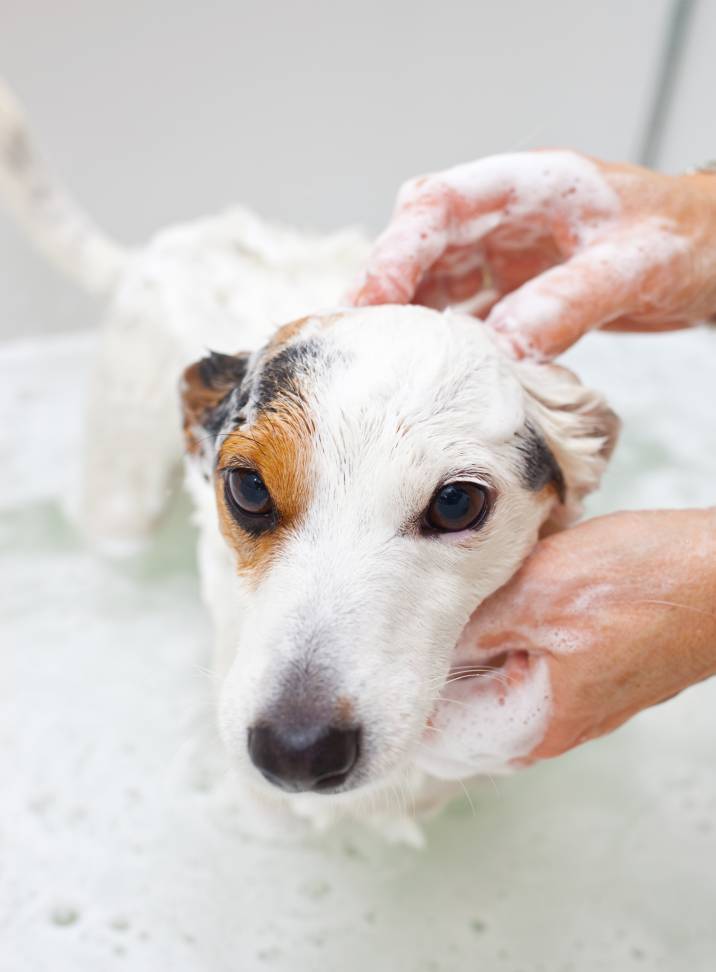
If you teach your dog to associate bathing with things they love (like treats), you’ll be in for a much easier experience. Help your dog feel relaxed and comfortable and approach bathing gradually and calmly. Give lots of praise and rewards along the way, and consider the following tips:
- Brush and trim mats or knots before bath time.
- Wet your dog’s hair to the skin and work from the chest and neck area down.
- Avoid wetting the head, and make sure you avoid the eyes, ears, nose, and mouth. Use a damp face cloth to clean the head.
- Prevent water from getting into the ears.
- Once wet, apply hypoallergenic dog shampoo to the chest, then gradually to other areas of the body (ensure you get the undercoat).
- After shampooing, gently rinse off the shampoo thoroughly.
- Apply a gentle, hypoallergenic conditioner, as you did with the shampoo, and let it sit for several minutes before rinsing.
Dry your dog thoroughly and reward them for calm behavior (throw in a treat at the beginning and end as well). This will help teach your dog that bath time making is a fun and positive experience!
Step 4: Cleaning the dog’s ears
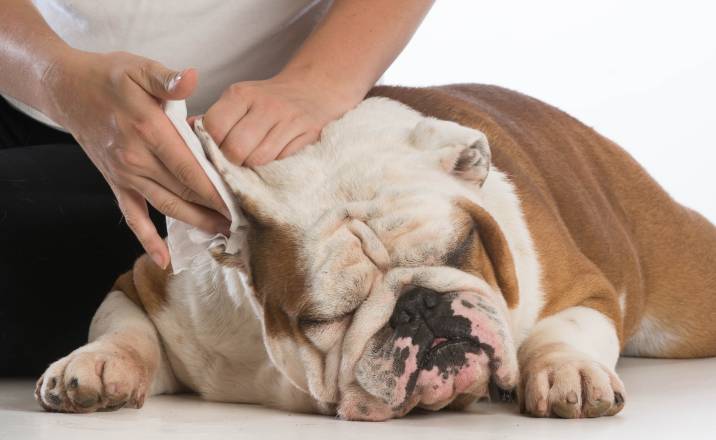
Regular cleaning is not really necessary for dogs unless they have long, droopy ears. If your dog’s ears do require a clean, just follow these three simple steps (but if you’re uncomfortable doing this yourself, you can leave it to a professional):
- Gently hold your dog’s head and expose the open ear.
- Apply dog ear cleaning solution.
- Use a sterile gauze pad or sponge to wipe the excess solution gently.
If you notice a lot of head shaking, ear discharge, ear scratching, or rubbing, these are some signs that your dog may have an issue with its ears. Take your dog to the vet to confirm this.
Step 5: Clipping the fur
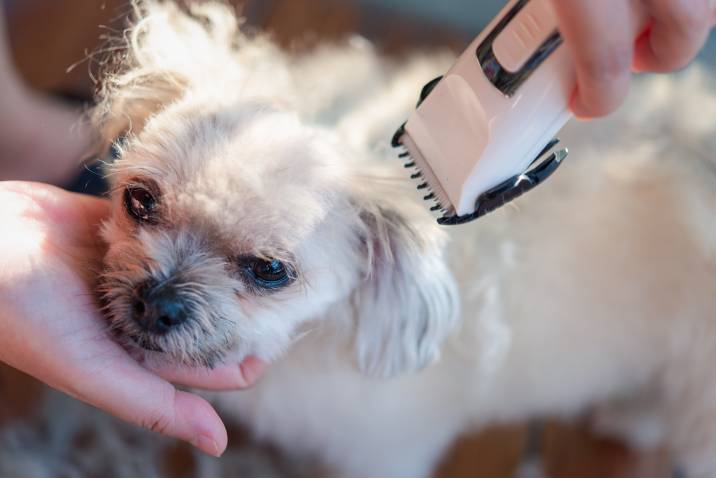
Trim or clip your dog’s fur with the direction of the hair growth for a smooth and even cut. Before attempting to clip your dog’s fur, it’s best to call in a professional groomer to walk you through the process. This way, you can learn the proper technique, combs, and blades suitable for your dog’s coat type.
Make sure to go slow and keep your clippers sharp, so you can easily clip your dog’s hair without tugging and hurting them.
Step 6: Brushing your dog’s teeth
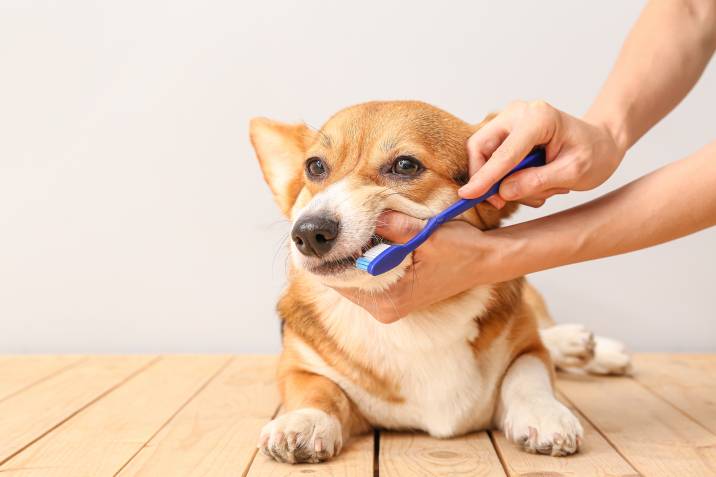
By giving your dog safe chew items daily, you can do most of the heavy lifting in keeping their teeth and gums healthy. Dental chews are your best friend!
When it comes to brushing their teeth, follow these steps:
- Squeeze doggie toothpaste onto the brush and let your dog lick it off.
- Flip your dog’s lips and gently rub the toothpaste against the teeth and gums with a dog toothbrush.
- No matter how long this task takes, your dog gets a treat! This will help teach them that brushing equals rewards.
| Also read: Ultimate Guide to Dog Care – Everything you need to know about caring for a dog, from grooming to training |
Need help grooming your dog?
If you are still a little unsure about effectively grooming your dog, there are plenty of skilled dog grooming home service Taskers who can help! Save yourself some time and ensure the safety of your pet by letting a professional give them a fresh new look today.
FAQs on grooming a dog
Dog grooming can take an hour on average or two hours for larger breeds and more difficult coats. Meanwhile, small, short-haired breeds can be groomed in as little as 20 minutes. The size of your dog and the condition of their fur will be the determining factor in the time it takes to groom them.
The general rule is only to bathe your pet when necessary. How often to bathe or groom a dog will vary depending on the dog’s breed and specific needs. Good hygiene is essential for healthy dogs, but they don’t need daily grooming as humans do! Also, bathing too frequently can dry out your dog’s skin and hair. Visible dirt or an evident smell are usual signs that it may be bath time. Also, look out for mats and tangles in the fur.
When it comes to brushing, your dog’s coat type and length will determine the regularity. Short coats generally require less grooming than medium and long-haired coats. Look for any tangles or mats and follow this general guide:
- Short-coated dogs:
Brush once every few weeks
- Short but dense fur:
Brush once a week or fortnightly
- Long-coat or double-coat:
Brush every week
In necessary cases, you can restrain your dog by covering their face with a towel or using a loop or muzzle if they are being particularly difficult. The goal of restraint should never be to hurt your pet; Restraining tools should facilitate your dog’s protection as well as your own.
Find dog groomers, fast
Find dog groomer
Related articles
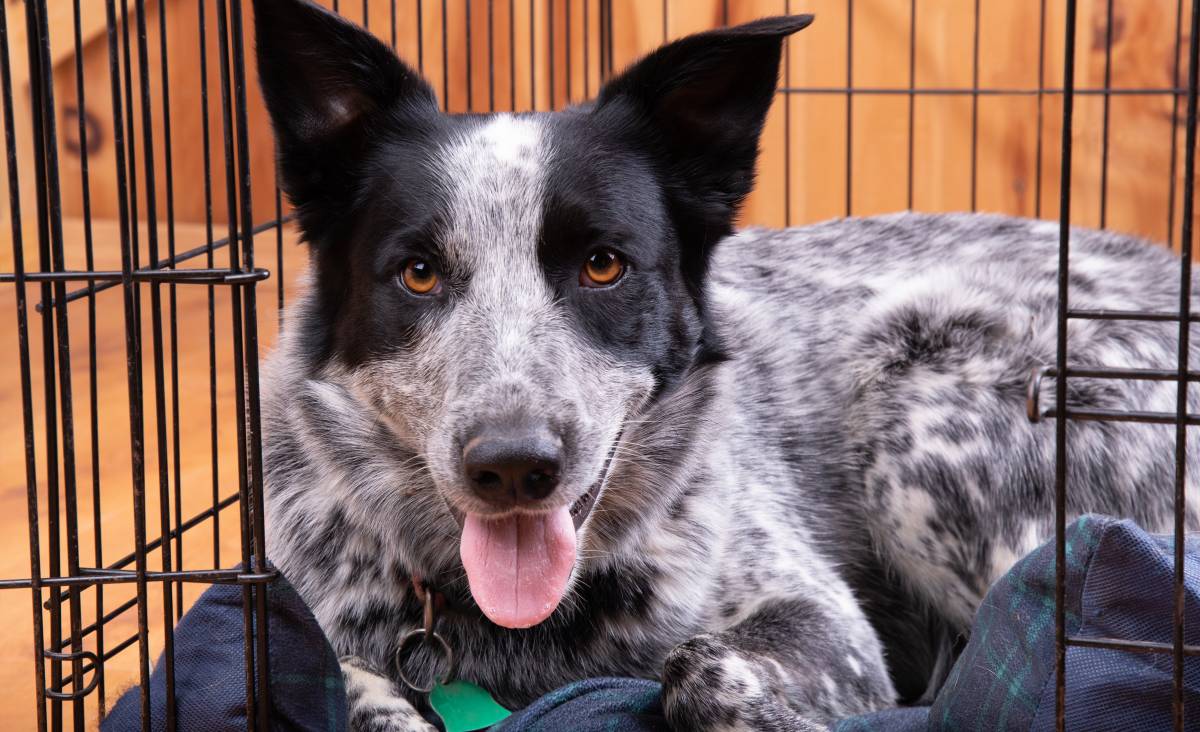
4 Tips for crate training a rescue dog
Read more
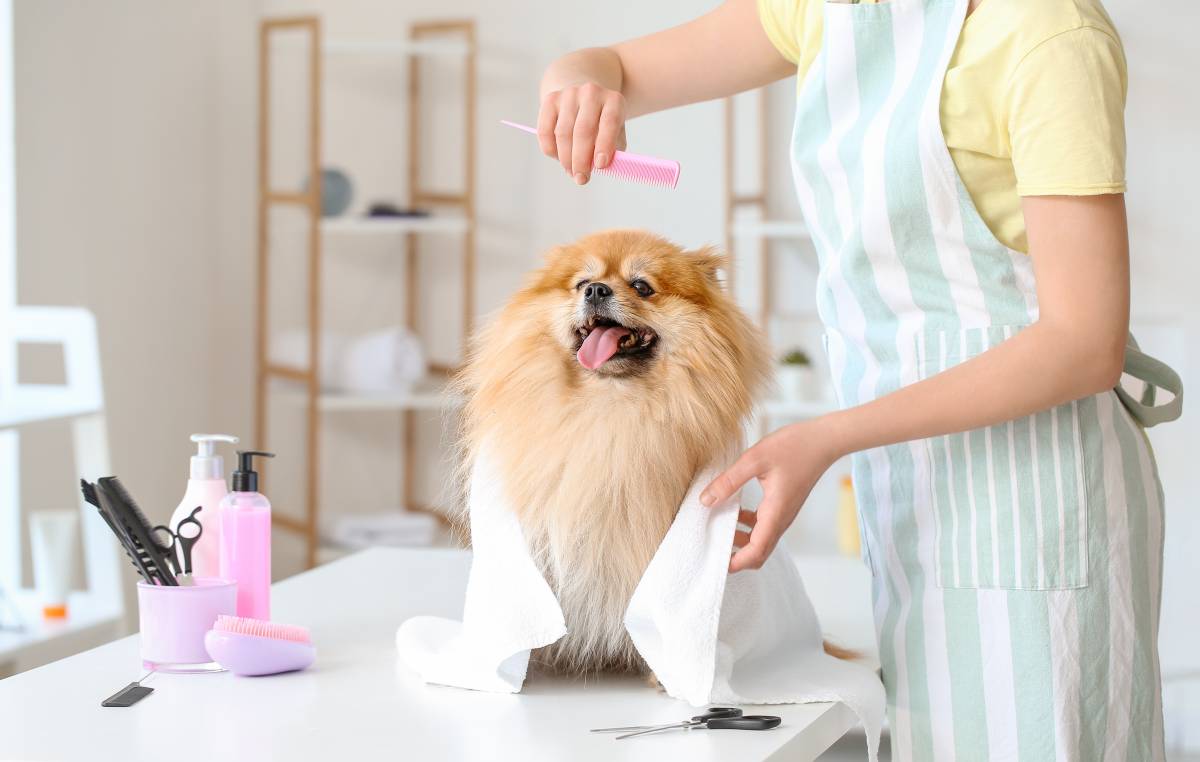
How to become a dog groomer
Read more
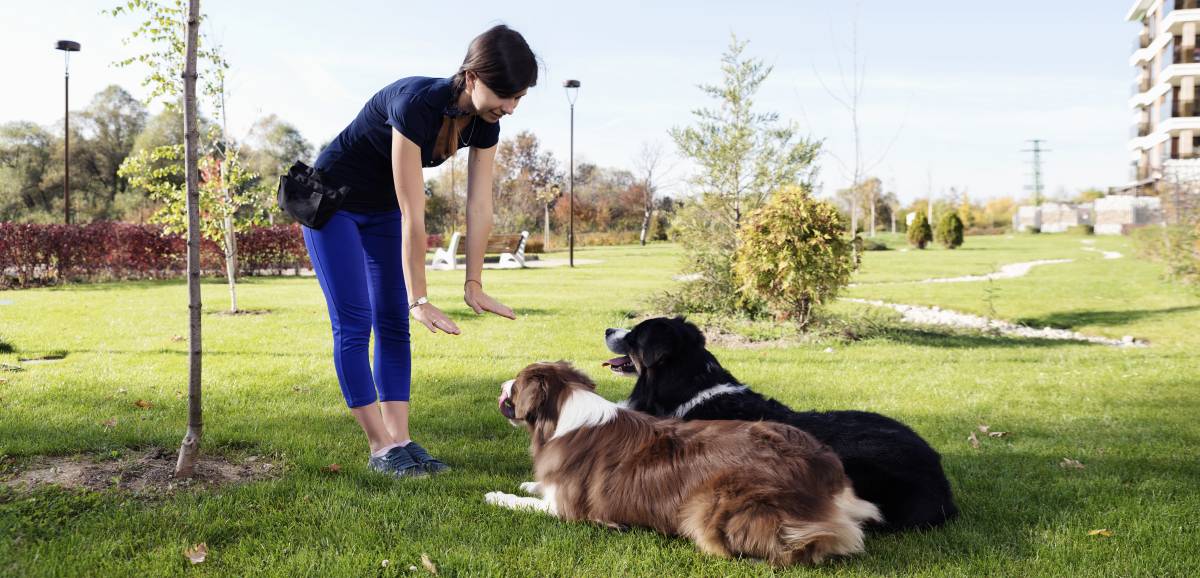
Dog training 101: How to train your dog
Read more
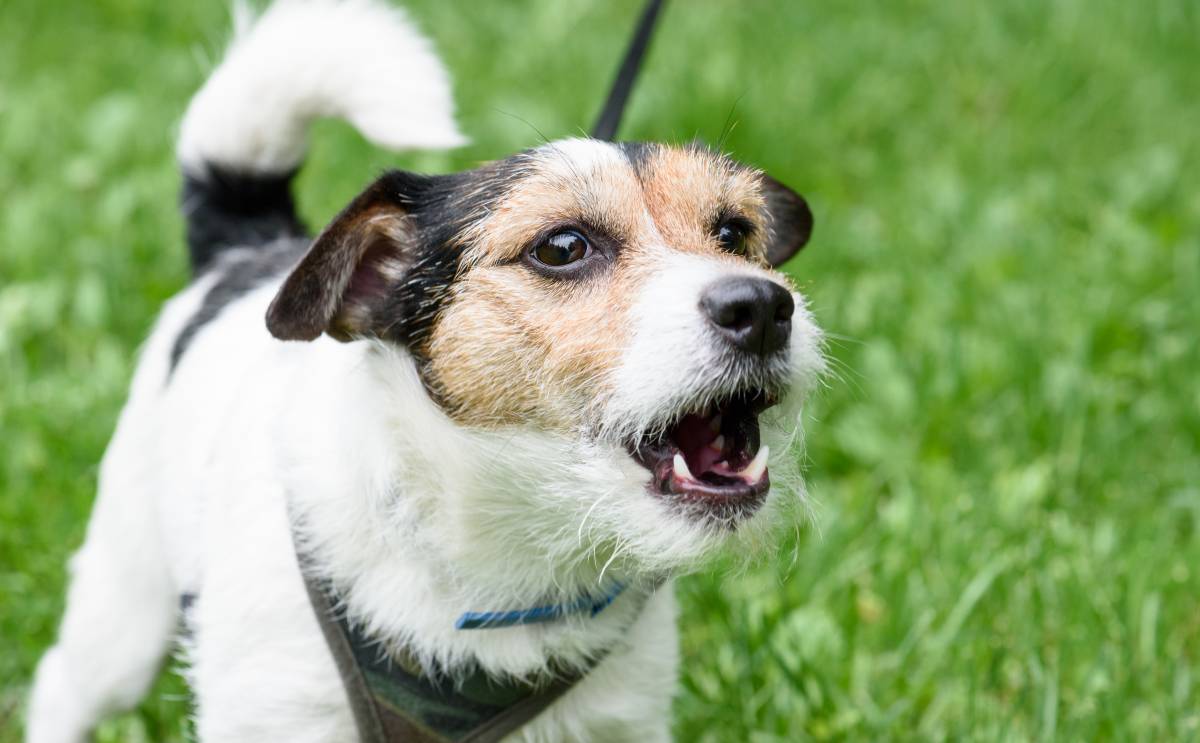
Reactive dog training tips
Read more
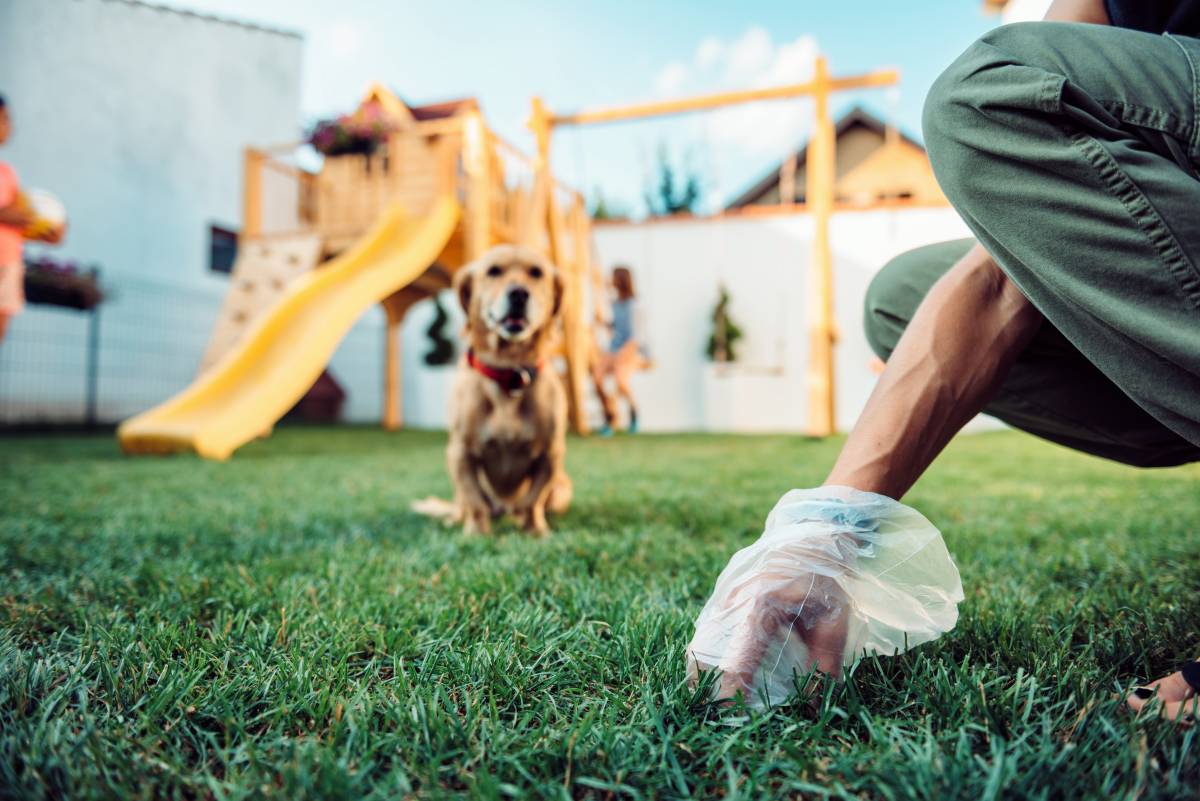
3 Effective ways to house train a dog
Read more
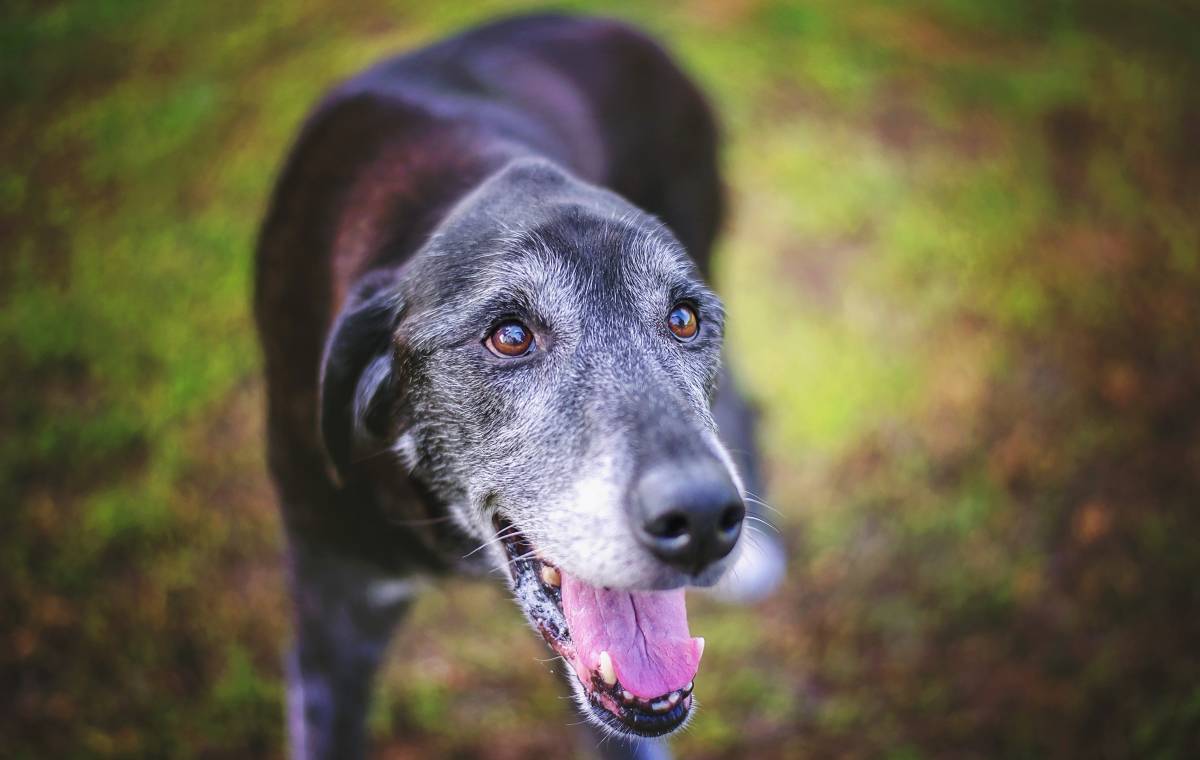
Tips for training an older dog
Read more
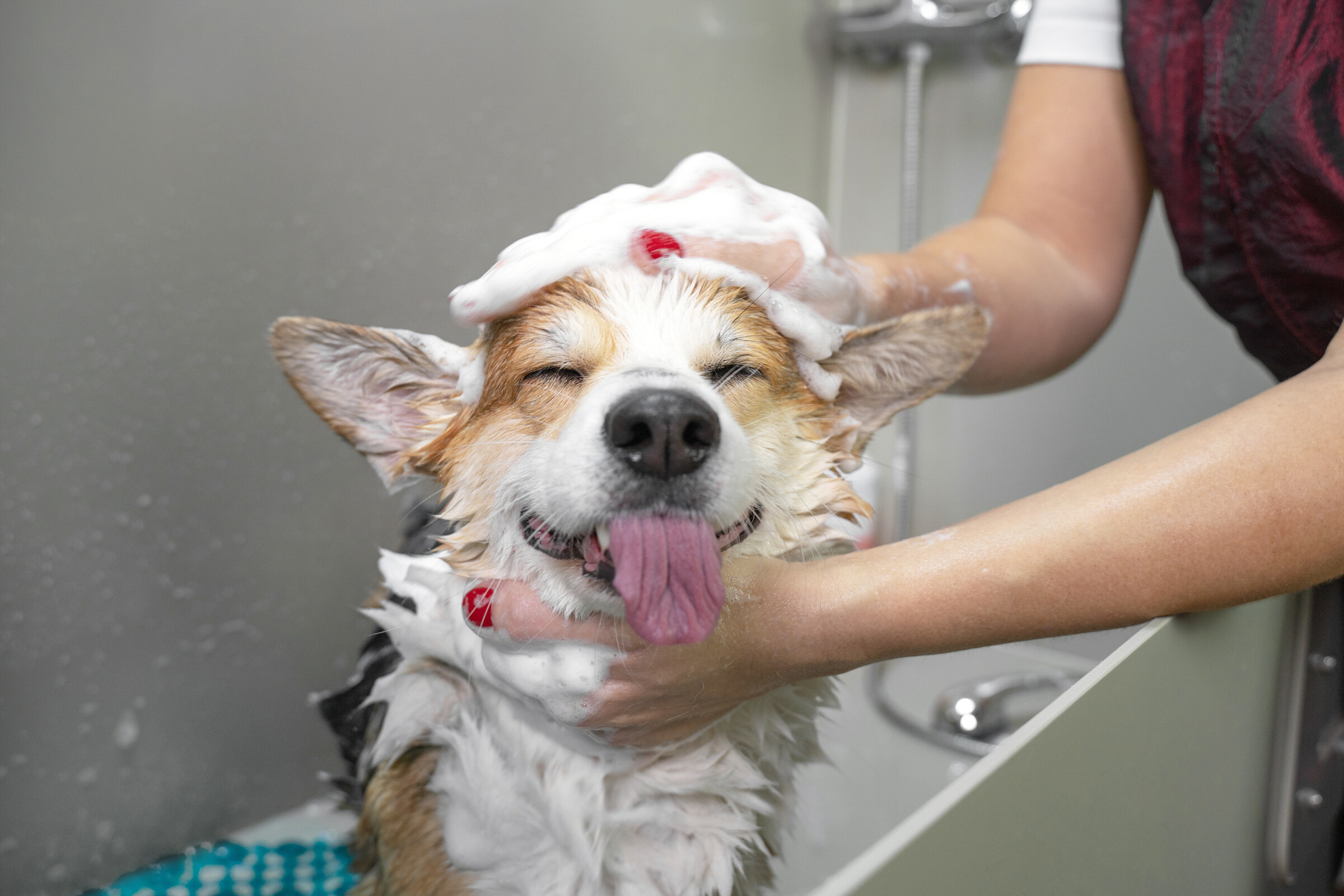
How often should you wash your dog?
Read more

Your ultimate guide to dog care
Read more
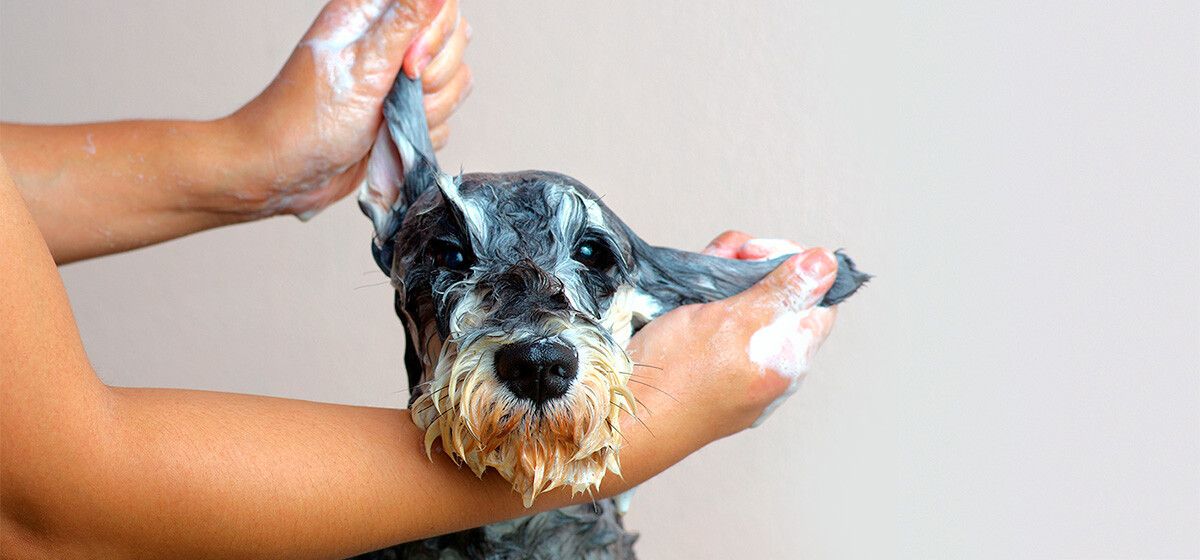
How to bathe your dog like a groomer
Read more
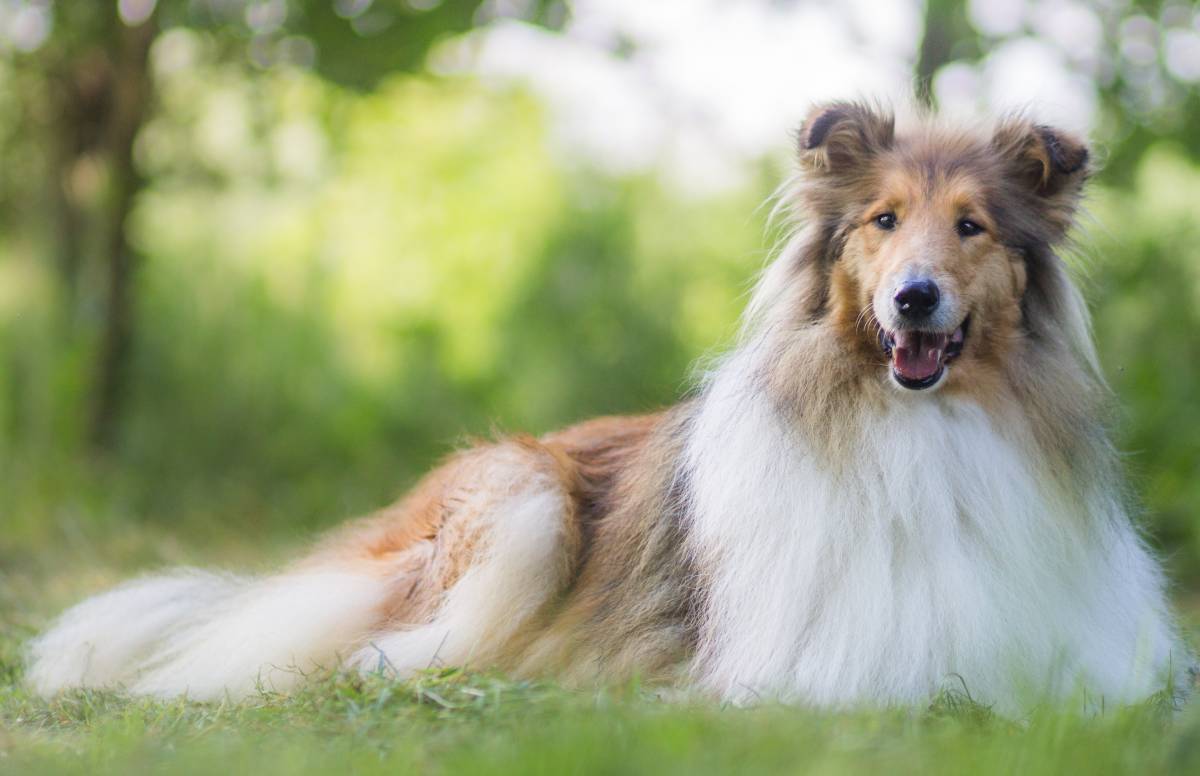
How to groom a long-haired dog
Read more
Related price guides
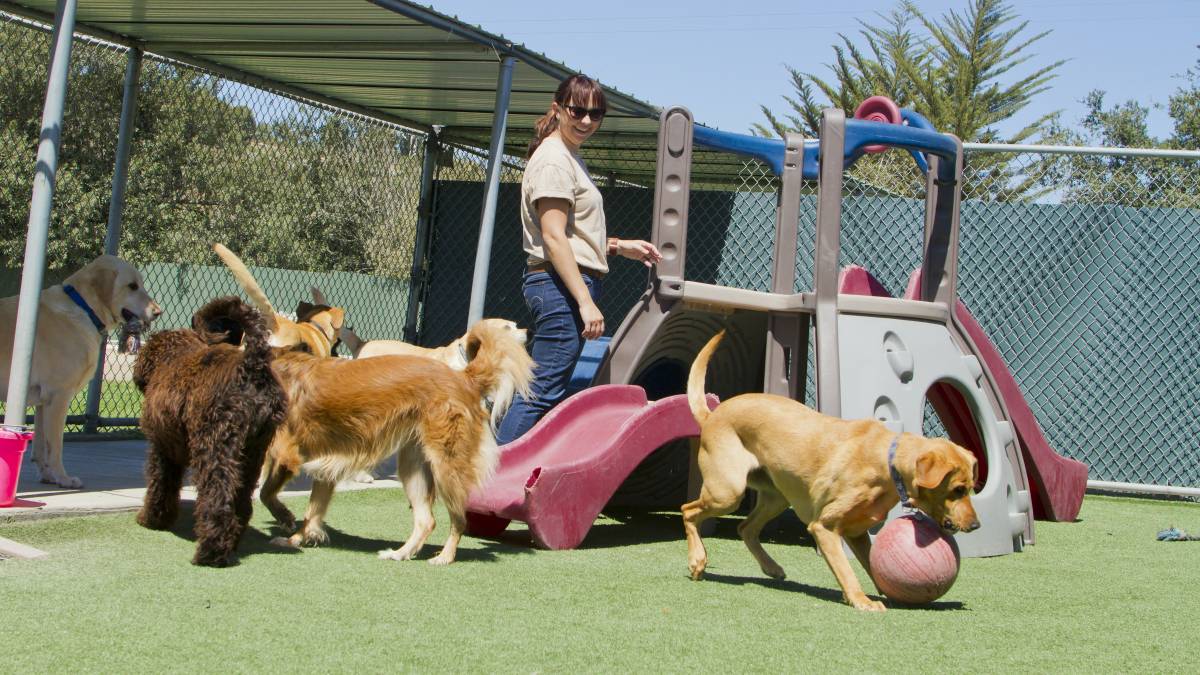
How much does doggy day care cost?
Read more
